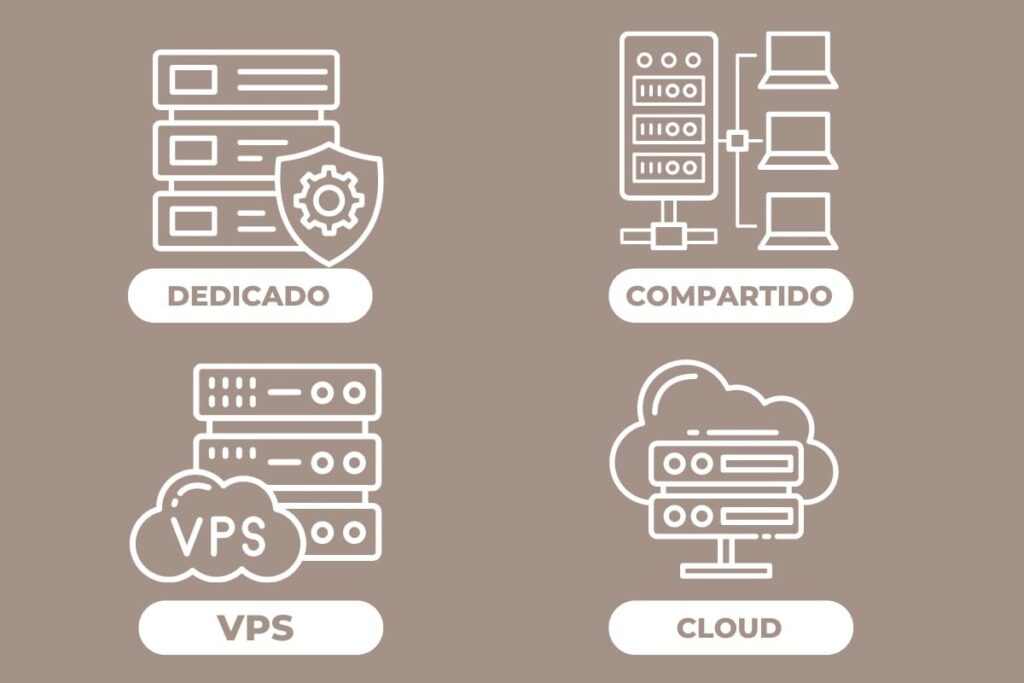There are different types of servers that you should use depending on your website’s needs. In this article, we are going to tell you everything you need to know about VPS hosting to see if it will be useful for your project.

Web hosting and its different types of servers
Before discussing VPS, it’s necessary to briefly introduce the concept of hosting.
Hosting is a web storage service responsible for storing a website so that it is available online. In other words, it is what allows users to access a website through the internet.
The importance of this service is very high (the user experience depends on it), which is why different hosting variations have emerged to adapt to diverse needs. The market currently offers different types of hosting so that each person can choose the one that best suits their project.

There are four types of hosting: dedicated, shared, VPS, and cloud hosting. The differences between them always relate to the server: whether it is physical or virtual, and whether it is shared or private.
Servers are very powerful computers used by web hosting service providers. They host the website and all the data associated with it.
What is VPS hosting and how does it work?
To better understand how this type of server works, we need to briefly mention the dedicated and shared hosting types. A dedicated server is a physical server fully contracted by a single owner. A shared server, as its name suggests, is a physical server used by several different users. A VPS is a combination of both.
As mentioned earlier, the hosting service determines whether a user can access the website. When a visitor tries to access a site, a request is sent to the server, which sends back the site data. To handle this, the service must have enough resources, since there will not be just one visitor. One of the main features of VPS hosting is that resources are not shared.

VPS stands for Virtual Private Server. Basically, it is a physical server that is digitally divided so that resources are not shared.
So, VPS hosting provides a cloud-based server that originates from a physical server. This physical server is shared among several users who also have their own virtual server. In simple terms, VPS gives you the privacy of a dedicated server, but at a price closer to shared hosting.
Advantages and disadvantages of using a VPS server
As with any service, there are positive aspects and others that are not so favorable. The key is to analyze which ones are most important for your project.
Advantages
- Server resources are guaranteed. In shared hosting, if a user’s site receives a traffic increase due to a marketing strategy, they may consume most resources, affecting your site. With VPS hosting, your resources are yours alone.
- It is usually much faster than shared hosting due to dedicated resources, which improves loading speed.
- It is more secure. Because it is private, only you have access to your server. In terms of cybersecurity, it is a better solution.
- It is scalable. When starting a project, the final result is uncertain, so choosing services that adapt to future needs is essential.
Disadvantages
- You need more technical knowledge than with other hosting types. Since it is more customizable, you may need to hire someone or learn how to manage it.
- It is more expensive than shared hosting (but cheaper than dedicated hosting). You will need a larger budget.
- If configured incorrectly, you may experience problems with security or user access.
So, when should I use it?

When starting a digital project, shared hosting is usually the first option. This is because it is more affordable and much easier to use. We could say it is the best service for beginners.
However, as the website grows and begins to receive more traffic, it’s important to upgrade your hosting service—not just to optimize the site, but mainly to improve the user experience.
This brings us to say that VPS is the next step after shared hosting when growing a project. It is the upgrade to make when the previous service is no longer performing well.
If you believe you’re at this stage, if your current service has started failing and users complain about loading speed or access issues, it’s time to move to the next level.



